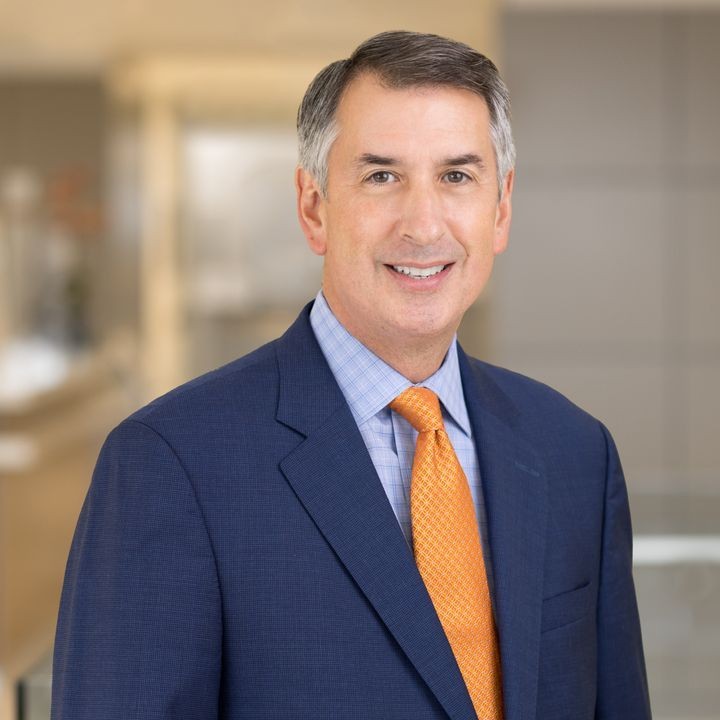I Can’t Breathe
Publication | 05.29.20
I Can’t Breathe
The COVID-19 pandemic has struck fear and wrought illness indiscriminately across the globe. We will eventually weather this storm, find health solutions that contain the damage, and restore our sense of confidence that we can live our lives as we did before. It will take time, but we’ve overcome challenges like this before, with science, sound policy, and community will.
The pandemic has taken a disproportionately heavy toll in the United States on men, and particularly members of the African American community, for reasons that seem tied in part to the health risks prevalent among these members of our community. COVID-19 attacks especially the respiratory system, leaving its victims gasping for air, and sometimes dying for want of it.
But George Floyd didn’t have COVID-19. He died gasping for air, pleading “I can’t breathe,” as a white police officer kneeled on Mr. Floyd’s neck, pressing his face into concrete for 9 minutes, until he was dead. The cause for this insane encounter: suspicion that the unarmed Mr. Floyd had presented a counterfeit $20 bill at a convenience store.
Ahmaud Arbery did not have COVID-19. He died as air and blood rushed out of his chest, executed at point blank range by a shotgun blast, as he was jogging through his extended neighborhood. His white killers claimed legal right to take the life of this young black man, seeking to corral him like an animal, and using deadly force against an unarmed, innocent individual.
Christian Cooper also did not have COVID-19. He somehow managed to keep intact his wits, and his life, in a moment that would leave anyone breathless: while bird watching in Central Park, a white woman whom Mr. Cooper simply asked to leash her dog, as required by law, responded by first threatening to call the police on him, and then followed through, falsely reporting to 911 that he had threatened her and her dog, plainly intending to menace him with the prospect that police would exact harm on him without any provocation or justification. Fortunately, they did not, and he lived to talk about it.
These African American men all were victims of a far more familiar, enduring, and pernicious sickness in our country and in many parts of our world: racism and racial injustice. There is no vaccine for this malady, and it seems there is no end to it, either. Perhaps worst of all, if there were not video recordings of these ghastly events, most people would not even believe they happened – yet another manifestation of the underlying racial bias that dismisses the very existence of these vile acts, or presumes that the victims somehow deserved their fate.
We must shine a light on these horrific acts of bigotry and injustice that relentlessly plague especially the black members of our communities, and we all can and must play a role in seeking a cure. We can begin locally, with being sensitive towards the many members of our Crowell family who are hurting right now, who feel these threats and injustices personally and deeply, and who need and deserve our support. And we will continue our ongoing efforts to create opportunities in our own community for conversation about race and racial justice, through our dialogues, our speaker events, and further programs to raise awareness and provide training about the destructive impact of bias, both explicit and implicit.
Tonight, at 8:45 pm CDT, which is approximately the time that George Floyd breathed his last on Monday evening, my family and I will mark a moment of silence in his memory. I encourage you all to do the same. And then we should ensure that we are not silent when we can speak to these issues. Beyond Crowell, each of us must speak up, speak out, and channel constructively, peacefully, and persistently our outrage that such things as these can happen in a nation defined by principles of freedom and equality, where we struggle still to make those concepts a reality for all. We must declare this sickness to be intolerable, and we must act in ways that make any strain of it unacceptable.
These are issues of great moment and gravity, which deserve our attention, our commitment, and our passion for change. Every time we see something that we know is wrong, we owe it to ourselves and our entire community to deplore it, and to summon the will to change it.
Philip T. Inglima

Chair of Crowell & Moring
Contacts
Insights
Publication | 03.01.26
Publication | 02.19.26
The QICDRC Practice Direction on the Use of Artificial Intelligence
Publication | 02.06.26



